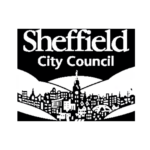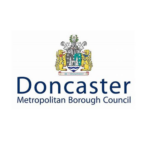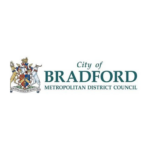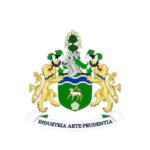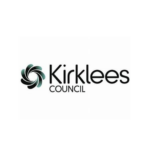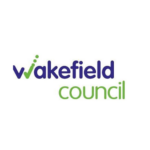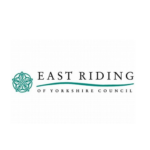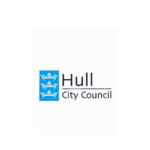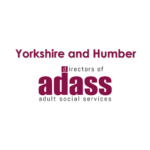Help for all sponsored workers in Adult Social Care
We predominantly provide help for people who are looking for a new sponsor in Adult Social Care.
A very warm welcome to the UK. The UK is a country with a diverse and multi-ethnic population, and we value the skills and experience that people bring to our country. People from all over the world have made this country their place of work and their home and we thank you for choosing to relocate here.
Thank you also for choosing to work in the Care Sector, enabling people to live happy, healthy and independent lives is a career that makes a difference to people and their families lives every day and in our local communities. The work you do is vital and rewarding with a responsibility to safeguard people.
We hope that everyone has a great experience of relocating to the UK but it can be complex getting to know a new country, working life and new laws to work within.
This guide is designed to help you know what your rights are, and signposts helpful information where you can go to gain more advice and support.
This guide will help you if you have problems with your job, your employer, accommodation or pay.
In addition to this help on this page, you might find it useful to read: Guidance-For-International-Workers-in-the-Care-Sector.pdf (justiceandcare.org)
Information and Links
General advice and help
You can find advice on staying safe and avoiding scams when searching for a social care job in the UK here

Working in the UK; know your rights
Your rights as a worker are protected by UK law.
Some rights apply as soon as you get a job, others depend on how long you work.
What you should expect from your employer is detailed on this website: Workers' rights - Employment rights - GLAA . These are your legal rights.
✔️ DO check that your agency is on the ‘ethical recruiters list’
✔️ DO get a contract describing the salary, hours, location, and any repayment clauses – make sure your employer sticks to the contract.
✔️ DO be aware of the signs of exploitation, including:
❌ receiving little to no payment
❌ being asked to repay large amounts of money
❌ working very long hours
❌ having no time off
✔️ DO NOT apply to jobs that seem too good to be true.
✔️ DO NOT pay money to an agency to find you work in the UK – this is against UK law.
✔️ DO NOT be forced or threatened into signing a contract.
✔️ DO NOT accept threats of deportation from your employer – understand your rights.
If you think you or a colleague are being taken advantage of, or you have witnessed illegal behaviour, report your concerns to get help from Acas on 0300 123 1100 or by calling the Modern Slavery Helpline on 0800 0121 700.

Your employment rights
This guidance is for people from overseas who may want to work in health and social care in the UK. It will help you to understand working rights and standards.
If you have relocated to the UK as a sponsored employee, your employer has things they must do, these are your employer’s responsibilities;
The below list includes the most important responsibilities they have as your sponsor;.
- They should check you have the necessary skills, qualifications or accreditations to do your job.
- They should provide you with a valid certificate of sponsorship and keep this updated with any relevant changes
- They should inform Visas and Immigration (UKVI) if you are not complying with the conditions of your visa
- They should keep copies of relevant documents, including proof of right to work checks.
- They should pay you for the work that you do and provide you with a payslip (a record of your pay)
- They are liable for any applicable Immigration Skills Charge and cannot pass this cost not you
For a full list of all the employers responsibilities please see UK visa sponsorship for employers: Your responsibilities - GOV.UK (www.gov.uk)
Your responsibilities whilst being sponsored
You may be on a skilled worker visa or a health and care worker visa. Each of these have responsibilities that you must do. Your responsibilities depend on the Visa you have and include what you can and can’t do whilst working in the UK on a sponsored visa. If you do not comply with this you could risk your visa being revoked (removed).
Skilled Worker Visa – Skilled Worker visa: Overview - GOV.UK (www.gov.uk)
Health and Care Worker Visa - Health and Care Worker visa: Overview - GOV.UK (www.gov.uk)
Care worker recruitment requirement- support for displaced workers
From the 9th April 2025, the government introduced new requirements for employers when sponsoring care workers / senior care workers. Employers were only able to sponsor new care workers where there are no existing displaced care workers available to fill the vacancy. This is referred to as the Care Worker Recruitment Requirement. Under further changes introduced from the 22 July 2025, this is no longer a requirement and only applies to Certificates of Sponsorships issued between 9th April 2025- 21st July 2025
Further changes effective from the 22 July 2025
- Closure of the health and care worker visas to new applications from abroad for care workers. For a transition period until 2028, visa extensions and in-country switching for those already in the country with working rights will be permitted but kept under review.
- Increased salary thresholds (this has not impacted on rates specific to care workers / senior care workers).
You may see this referred to as the Care Worker Immigration Status requirement. If you already have a Skilled Worker, health and care visa as a Care Worker or Senior Care Worker, provided you continue to have a sponsor, you are able to:
- Extend your visa with your current employer
- Change jobs within the sector and then apply for a new visa
- Change from care worker to senior care worker if promoted
You need to have had this permission continuously since it was last granted. You may be asked by your new sponsor to provide documents to help evidence you already have a health and care worker visa. This could include your current Certificate of Sponsorship and current right to work permissions.
If you have right to work in the UK under a different visa type, you may apply for a Skilled Worker, health and care visa if:
- You have legally worked for the employer who is applying to sponsor you, in a Care Worker or Senior Care Worker role, for at least 3 months prior to the sponsorship being applied for.
- This includes visa types such as dependents, as well as students and graduate visa holders
If you already hold a Skilled Worker, health and care visa and are changing jobs to work for the new sponsor, there is no requirement to have worked for the 3 continuous month period. This would be classed as a Change in Employment.
From 23rd July 2028, no new entrants to Health and Care worker visa from other visas will be permitted. Visa holders already in the care sector before that date, will continue to be able to extend their visa and change employers to a new sponsor.
These requirements are still subject to Government review.
English language requirements
From 8th January 2026, new applicants to the Skilled Worker route will need to meet the increased English language requirement of level B2. This change will only apply to if you are making your first application. People who have already obtained a permission based on the B1 level requirement, will continue to be subject to a B1 level requirement where they are seeking an extension on the same route.
If you are on a graduate or student visas, switching into the Skilled Worker route, this will not be an issue for you as you will already have the higher level of English required.
Further reforms
There are other changes being introduced as part of these reforms, some of which are listed below:
- Introduction of a new English language requirement for all adult dependants of workers and students
- Introduction of requirements to demonstrate language progression for any visa extension
- Increasing the standard qualifying period for settlement from 5 years to ten years.
Dates of the changes and full detail have not yet been released however we acknowledge these announcements will likely bring a level of worry and uncertainty for employers and workers. Please do not panic, these changes are not immediate and there continues to be a significant need for care workers.
Key messages - what does this mean for you?
- If you are currently being sponsored as a Care Worker and you believe that you and your employer are meeting the minimum sponsorship requirements, there should be no immediate change and there is an opportunity to extend and or switch visa routes until July 2028.
- Providing you are in the route by 22ndJuly 2028, you will be able to continue to extend your visa and change employer past this date.
- If you are currently being sponsored as a Care Worker but your employer’s licence has been revoked or you believe that the employer is not meeting their current sponsorship requirements; you are strongly advised to seek and gain new sponsored work to secure the ability to work in the UK.
- Part of your current sponsorship requirements is the ability for you to meet the minimum English language requirements. Whilst the increase in English language requirements to B2 for new applicants may not affect you now (ie if you are an existing Skilled Worker), if your English language ability is not advanced, we recommend that you seek to develop this to ensure that you meet these requirements into the future.
- Many of the roles in the care sector require you to travel within communities and owing to limited public transport and the need to provide care 24/7, the requirement to have the legal ability to drive in the UK is directly linked to your employability prospects in the sector. You are encouraged to ensure that you secure the ability to drive in the UK and have independent methods of transport.
- If you believe that you are being exploited, for example you are not receiving the hours or wage that you were promised, that you are having excessive deductions from wages or being charged for your employer’s recruitment/sponsorship costs, you are strongly encouraged to report this. Seek help and support and prioritise finding new sponsored employment.
Working Additional Hours
If you work overtime in the job you’re being sponsored for, you do not need to update your visa. There’s no limit to how many hours of overtime you can do in the job you’re sponsored to do however this should still be in line with the Working Time Directive referenced above.
There are specific circumstances where you can also work up to 20 hours a week in another job or for your own business, as long as you’re still doing the job you’re being sponsored for and that in doing so the work does not impact on your core sponsored job. You should make your employer who is sponsoring you aware that you are doing additional work before hand; you will need to ensure it does not conflict your sponsored work in any way.
If you undertake supplementary employment with more than one employer, it cannot exceed 20hrs in total. It is not 20 hrs per employer. Any hours worked, including time spent asleep, are considered as working hours and therefore will count towards the 20 hours supplementary work limit. The pay during the time asleep must be paid at least in line with UK law.
Your work must be one of the following:
- In the same profession and at the same professional level as the work for which your CoS was issued
- A job which is listed in the Appendix Immigration Salary List -if the job is later removed from the list, you must finish that employment
- For Skilled Workers only, a job which is in an eligible occupation code listed in Table 1, 2 or 3 of Appendix Skilled Occupations
- For Skilled Workers who were last granted permissions under the immigration rules before the 22 July 2025, and held continuous permissions since then, a job which is in an eligible occupation code listed in Table 1a, 2aa or 3a of Appendix Skilled Occupation.
Check if your job is on the list of:
- Healthcare and education shortage occupations
- Immigration Rules - Immigration Rules Appendix Skilled Occupations - Guidance - GOV.UK
If you are unsure whether you can do the supplementary work, have a chat with your current sponsor and ask them to work through this with you.
You can also do unpaid voluntary work.
If you are doing additional work, you must be mindful of the working time directive, and your own health, safety and wellbeing.
If you’ll be doing more than 20 hours a week in another job or working in a different occupation code
You’ll need to apply to update your visa so that you’re being sponsored to do both jobs.
You’ll need to:
- get a new certificate of sponsorship from your second employer
- include a letter with your application explaining that you want to change your current permission to stay
This must be done PRIOR to you commencing the secondary, additional sponsored work. If you are remaining with your original sponsored employer, inform them in advance of seeking secondary work to ensure that it does not affect your primary sponsorship or breach any conflict rules.
Please be patient with this as sponsorship can be complex owing to background systems.
Important information about recruitment costs
As a prospective employee, you should not be charged by your new employer for any costs related to your Certificate of Sponsorship, this is the employers responsibility.
Your only required cost is your Visa fee, which you will need to apply for via the Home Office; Health and Care Worker visa: How much it costs - GOV.UK
Your employer should not charge you for any Solicitors fees. If you decide to use a Solicitor this is your own choice and you should have the freedom to select a Solicitor of your choice.
If your concerned that your employer is charging you fees to join them, please contact the YHIR recruitment project for advice makecarematter@northyorks.gov.uk
Further advice on your employment rights and other help you can get is available through Citizens Advice
Diaspora groups or associations are communities or networks of international health or care workers of the same nationality or culture. They can link you up with other international recruits from your home country and support you with your continuing professional development. You can find more details here.
Acas gives free, impartial advice on workplace rights and rules. They can also help with dispute resolution. Acas offers advice through its website or alternatively they can be contacted through their helpline 0300 123 1100 for confidential free advice on any work-related problem. The helpline is open Monday to Friday, 08:00 to 18:00.
Your Pay
Your employer must pay you for the work that you do and provide you with a record of your pay (Payslip). You must be paid a minimum rate for the type of work you’ll be doing on a skilled worker visa.
For care workers these are:
- £25,000 from April 2025 (increased from £23,200 per year April 2024)
- £12.82 per hour for certificates of sponsorship assigned after April 2025 (increased from £11.90 April 2024)
In addition to sponsorship regulations employers must also meet UK law, therefore you must always be paid at least the current National Minimum Wage, even if this is higher than the rate at the time the certificate of sponsorship was issued.
Therefore, if you were assigned a certificate of sponsorship prior to April 2025, you should be paid at least national minimum wage of £12.21 per hour from 1st April 2025 (increased from £11.44 per hour 1 April 2024).
Allowances above basic pay such as weekend/nightshift or sleep-in allowances are excluded from the minimum salary threshold for sponsored migrants and must be paid in addition to meet sponsored migrants minimum salary conditions.
There are different salary rules if you work in some healthcare or education jobs. Skilled Worker visa: If you work in healthcare or education - GOV.UK (www.gov.uk)
The salary details would always be specified from the outset within the Certificate of Sponsorship.
Everyone who works in the UK must be paid a minimum amount by law, this is called the National Minimum Wage, details can be found at National Minimum Wage and National Living Wage rates - GOV.UK (www.gov.uk) and is for every person in the UK regardless of type of visa. This is updated every year in April. If you have any deductions from your pay, it must not take your pay below the national minimum wage . If you think your pay is being deducted unlawfully check the national minimum wage rates and your payslip.
An itemised payslip
You should receive a pay slip on the day you are paid, which shows your gross pay and your net (take home) pay. It should show the amount and reason for any deductions taken from your pay. Deductions that change each time you're paid, such as tax and National Insurance, should be listed on each pay slip. You should receive your agreed pay on time, including any holiday or sick pay due to you.
Deductions from your pay
Your employer can only make certain deductions from your wages and they must be listed on your pay slip.
You should always receive the ‘net amount’ shown after deductions. Some deductions are statutory, like tax and National Insurance, others you may have agreed to, such as accommodation or transport charges.
Some deductions in contracts may not be legal. Even deductions you have agreed to must not take your pay below the minimum wage, except for a limited amount for accommodation. If you are not sure get help and advice (see below).
Your employer must NOT be making unlawful deductions to cover the costs of recruiting you or the costs of relocating you to the UK.
Further details about lawful and unlawful pay deductions can be found using the link below;
Understanding your pay: Deductions from your pay - GOV.UK (www.gov.uk)
As well as the government website, ACAS can also help to provide support and information.
You can find further information on the following websites;
Making and checking deductions - Deductions from pay and wages - Acas
If you think your pay is being unlawfully deducted and would like to gain advice you can contact your Union or Citizens Advice; Contact us - Citizens Advice
Pay deductions for accommodation provided by your employer
If your employer provides you with accommodation as part of your job you need to know the amount you are being charged either per day, or per week. This will help you to identify if it is less or more than the ‘off-set’ charge which is currently £10.66 per day from 1st April 2025 (increased from £9.99 per day April 2024). This does not mean you will be deducted or charged £10.66 per day, it is calculated as follows against your wage;
- If your accommodation is provided for free, the accommodation offset is added to your pay.
- If the charge for your accommodation is lower than the offset rate your pay remains unaffected
- If your accommodation is higher than the offset rate, your pay is calculated to take account of this and will be reduced.
It is important your employer gets the calculation right, if it takes your pay below the UK National Minimum Wage it could be unlawful.
Pay deductions for Uniforms
Your employer can legally take deductions from your pay if they provide you with a uniform. The deductions should not take your pay below the national minimum wage.
Hours of work
You should not have to work more than 48 hours a week, including any overtime, unless you have chosen to do so.
You are entitled to at least one day off per week, or two days every two weeks. If you work for more than six hours a day, you should have a rest break of at least 20 minutes.
Annual leave
You are entitled by law to a minimum number of weeks of paid holiday a year, starting from your first day at work. This includes part time, zero hours and fixed term contract workers.
The amount of holiday you get depends on the days or hours you work. It is based on your normal working hours (pro rata for part-time workers), accrued during the time you work for your employer and should be paid at your normal working rate.
When you leave your job, any holiday you are owed should be paid to you. If your employer will not allow you to take any holiday or you are owed holiday pay, you can contact the Acas Helpline or Citizens Advice for guidance on claiming the money back.
Find out more about ‘pay and work rights’ at gov.uk.
Health & Safety at Work
Making sure you safe when completing your duties is a lawful requirement for every employer. The official HSE website can provide you information regarding different health and safety regulations that must be in place. HSE: Information about health and safety at work
Inclusive Workplaces: Discrimination Free
The Equality Act 2010 legally protects people from discrimination in the workplace. This act protects employees from discrimination, harassment and victimisation. If you believe you have been a victim, please see the below pages which covers who is protected, types of discrimination and what action you can take.
A trade union is an organisation with members who are usually workers or employees. It looks after their interests at work by doing things like discussing members’ concerns with employers and negotiating agreements to provide a better working environment for the employees.
Your union will charge a union membership fee (‘membership sub’) to finance the work of the union. This can be the same amount for all employees or based on how much you’re paid.
Below are links to the trade union websites which can provide further information and a link to the current list of trade unions.
UNISON - the public service union
For interest, Unison have a migrant work network: UNISON Migrant Worker Network | UNISON National and publish articles All articles about: migrant workers | UNISON National
Home - The Care Workers Union (CWU)
Working Additional Hours
If you work overtime in the job you’re being sponsored for, you do not need to update your visa. There’s no limit to how many hours of overtime you can do in the job you’re sponsored to do however this should still be in line with the Working Time Directive referenced above.
There are specific circumstances where you can also work up to 20 hours a week in another job or for your own business, as long as you’re still doing the job you’re being sponsored for and that in doing so the work does not impact on your core sponsored job. You should make your employer who is sponsoring you aware that you are doing additional work before hand; you will need to ensure it does not conflict your sponsored work in any way.
Your work must be either:
- in the same occupation code and at the same level as the job you’re being sponsored for
- in a shortage occupation
Check if your job is on the list of:
You can also do unpaid voluntary work.
If you are doing additional work, you must be mindful of the working time directive, and your own health, safety and wellbeing.
If you’ll be doing more than 20 hours a week in another job or working in a different occupation code
You’ll need to apply to update your visa so that you’re being sponsored to do both jobs.
You’ll need to:
- get a new certificate of sponsorship from your second employer
- include a letter with your application explaining that you want to change your current permission to stay
This must be done PRIOR to you commencing the secondary, additional sponsored work. If you are remaining with your original sponsored employer, inform them in advance of seeking secondary work to ensure that it does not effect your primary sponsorship or breach any conflict rules.
Please be patient with this as transferring sponsorship can be complex owing to background systems.
Genuine Vacancy
When an employer offers a Sponsored Worker a job, the employer must demonstrate that the role offered is “genuine”. The employer needs to ensure that the job being offered to you is eligible under the Skilled Worker visa and that it meets the minimum salary requirements. All these requirements are designed to prevent employers from hiring overseas workers when there is no real need for it. This protects you and ensures that you have sustainable sponsored work. Your employer should be providing you with work that was described to you when you applied for the job and that meets the role definition.
Job searching and preparation

National Careers Service have online resources to support with writing CVs, preparing cover letters, completing applications, and preparing for interviews
Care workers can also speak to a careers adviser if they need support with writing a CV. Contact us

Your immigration status and legal advice
All queries relating to immigration status or visas should be referred to UK Visas and Immigration.
UK Visas and Immigration contact centre:
Telephone: 0300 790 6268 - select option 2
Monday to Thursday (excluding bank holidays), 9 am to 4:45 pm
Friday (excluding bank holidays), 9 am to 4:30 pm.
Free, independent, legal advice is available through Citizens Advice or contact Adviceline (England) on 0800 144 8848.
Free legal advice is also available through Law Centres
You can find out more about getting Professional Immigration Adviser from a Legal Adviser at Find an immigration adviser: Search for an adviser - GOV.UK
There is a ‘search’ facility on this website, where you can search for an Immigration Adviser based near to where you are based.
ENTER your postcode and select how far away (in miles) from where you live, you want the search to be.
You can also select whether you want ‘Fee Charging’, ‘Not Fee Charging (Free advice) or ‘Both’
Click on the green search button and it will bring up details of Immigration Advisers that meet your selected preferences. If the search returns NIL or details of very few Immigration Advisers, you may have to select a bigger number of miles from your postcode, or select ‘Both’ in the ‘Fee Charging or Not Fee Charging’ box.
E visa
The Home Office are replacing physical immigration documents with a digital proof of immigration status which is called an eVisa. This is a key part of delivering a border and immigration system which will be ‘digital by default’ by 2025. You can read more information about this change and the benefits here http://www.gov.uk/evisa
Physical biometric residence permits are no longer issued after 31 October 2024. If you currently use a physical immigration document, such as a biometric residence permit (BRP), or legacy paper document such as a passport containing an ink stamp or a vignette sticker, you will now need to take action to create a UKVI account to access your eVisa.
Updating from a physical document to an eVisa does not affect your immigration status or the conditions of your permission to enter or stay in the UK. The service is free for you to access, please be aware of scams which are circulating and quoting a charge for this service. Do not use these services or pay money to anyone in relation to this. You should only be using the Government website shown below to create a UKVI account and access your eVisa.
Online immigration status (eVisa) - GOV.UK
If you feel you need help with setting up the UKVI account or understanding the changes, there is help available via the Home Office Support , link below:
A list of regulated immigration advisers is available and includes details of advisers who do not charge fees.
Switching Visa and rules for dependants
Health and Care Worker visa: Switch to this visa - GOV.UK
Recognition of previous leave
“Where a migrant has been granted permission as a dependant and the lead migrant changes job or switches to another PBS route which allows dependants the original permission which the dependant holds will continue to be valid. Where dependants are already in the UK, and the lead applicant switches to care worker, they will have chosen to do so in full knowledge of the dependant rules. This is therefore not a reason to allow the dependants to switch exceptionally (unless of course they are children born in the UK, who are allowed under the rules). If the new permission granted to a lead applicant does not allow dependants it will not normally be appropriate to cancel those dependants’ existing permission, unless there are other reasons to do so. A decision not to cancel does not mean there is any expectation of further permission – once this existing permission ends, they cannot be granted permission to extend their stay as dependants, if the lead applicant does not have a form of permission which allows dependants”
The above has been extracted from page 9 of Dependent family members in work routes
Returning to your home country
If you are a migrant and you are considering returning to your home country because your Visa is going to expire, or already has, you can find more information on: Voluntary return to your home country - GOV.UK
Housing, Financial and Food support

Your accommodation
Your accommodation should be of a good basic standard and it should be safe. You should have access to electricity, heating and water. When you move into your accommodation you should have a Tenancy Agreement with your landlord. Your landlord is responsible for ensuring your accommodation is a suitable standard.
If you are looking for accommodation without your employer’s assistance, please ensure you use a legitimate landlord. The below website can support you in what to look for when renting a property.
How to rent: the checklist for renting in England - GOV.UK (www.gov.uk)
Websites such as Rightmove and Zoopla are popular ways to search for private rented accommodation.
Rightmove - UK's number one property website for properties for sale and to rent
Zoopla > Search Property to Buy, Rent, House Prices, Estate Agents
To check what your landlord is responsible for please visit; Renting out your property: Landlord responsibilities - GOV.UK (www.gov.uk)
If you have become homeless or are worried about becoming homeless, this guidance might help you:
Help if you’re homeless or about to become homeless - GOV.UK (www.gov.uk)
If you are working in the UK on a sponsored visa with no recourse to public funds specialist advice is available to you, as your immigration status may impact on your ability to access emergency accommodation solutions:
Find specialist immigration advice through your Union, Citizens Advice, Right of Women:
UNISON - the public service union
You can seek advice on your rights and tenancy agreement from Citizens Advice or Shelter Get help from Shelter - Shelter England.
International care workers are not usually able to access homelessness support through their local authority. Some exceptions may apply if there are dependent children in the household and the child is assessed as being in need; or if the adult is assessed as having care and support needs by social services. Contact your local authority for social services support in these circumstances.
Victims of human trafficking or modern slavery may also be entitled to homelessness assistance depending on their circumstances and immigration status. Your local authority should be contacted to confirm eligibility for support.
This tool may help you work out if further housing and financial support is available to you
Local authorities have welfare schemes to help with food, clothes, and bills. Each scheme has its own rules about who can get help. You can contact your local council to check if you are eligible.
A list of food banks is available through the Trussell Trust
Dependents
The UK Government made an announcement in December 2023 confirming that they would be changing visa rules in 2024. This included that social care workers will not be allowed to bring dependants (that is, partners and children) on their visa. This was introduced in 11th March 2024.
- Care workers (SOC code 6145) [2] and senior care workers (SOC code 6146) already in the route prior to March 2024 will be able to remain with their dependants, including extending, changing employer (within these SOC codes) and settlement.
- Where a care worker or senior care worker was in the route before the Immigration Rules changed in March 2024, but have not yet brought dependants, they will be allowed to bring dependants during their sponsorship (on the visa that was current in March 2024).
- Individuals who are in the UK on any other route, including where that route permits dependants, who switch into the care visa as a care worker or senior care worker after this date, will not be able to stay with (or bring over) dependants
Further details about the changes are available; Net migration measures – further detail - GOV.UK (www.gov.uk)
Public Funds
If you have permission to enter or stay in the UK, it may include a no recourse to public funds (NRPF) condition. The NRPF condition means you will not be able to claim most benefits, tax credits or housing assistance that are paid by the state but there are exceptions for some benefits. For more information, visit Public funds - GOV.UK (www.gov.uk)
If you want to consider other options for you and your dependents to work in the UK, options are detail here: Work in the UK - GOV.UK (www.gov.uk)
Reporting concerns and potential exploitation

Reports of unethical and illegal employment practices are taken very seriously.
Examples include:
- working excessively long hours
- receiving little or no pay
- paying work finding fees
- unable to move jobs freely
- forced to work through fear, violence or coercion
- having your movements controlled
- not in possession of your own passport
If you believe you are a victim of labour exploitation you can call the Modern Slavery Helpline on 08000 121 700 or file a report online.
If your employer is not meeting their responsibilities, or your employer has had their license suspended or revoked you have various options available to you.
My employer has had their sponsorship licence suspended, what should I do?
Please try not to panic. You can start work or keep working whilst the situation with your employer is being reviewed. It could be that you employer resolves the matter and retains their licence and ability to sponsor or a result could be that in the future they have their licence revoked (removed). Detail of what will happen is available here: Employees: if your visa sponsor loses their licence - GOV.UK (www.gov.uk). Appreciate that it is an uncertain time, the obligations your employer must meet and the process of meeting those obligations through compliance checks and resulting actions are detailed here: Workers and Temporary Workers: guidance for sponsors part 3: sponsor duties and compliance (accessible) - GOV.UK (www.gov.uk)
If you think that your employer is at risk of losing their licence (revoked):
You could start to seek alternative sponsored employment with another employer. You can look for vacancies on job site such as the ones below, but you could also contact Care Homes and Care Providers directly to see if they have vacancies and are offering sponsorship.
In North Yorkshire the Make Care Matter service can help you apply for and gain a new job in the care sector, and work with hundreds of employers across North Yorkshire: www.makecarematter.co.uk
Other Job sites to look for vacancies in North Yorkshire:
If you would like help with your CV, application or preparing for interview there is lots of information and guidance available to help you from the National Careers Advice Service. You can also speak to a Careers Adviser.
https://nationalcareers.service.gov.uk
If you had accommodation with your job and you now need to seek new accommodation you can get information and guidance on your options from;
https://citizensadvice.org.uk/housing/
My employer has had their sponsorship licence revoked, what can I do?
Employees: if your visa sponsor loses their licence - GOV.UK (www.gov.uk)
Department-of-Health-and-Social-Care-letter-to-all-sponsored-workers-in-the-care-sector.pdf
Register of licensed sponsors: workers - GOV.UK (www.gov.uk)
You will receive a letter from the Home Office confirming that your employer has had their Sponsorship Licence revoked and that they can no longer employ you.
If you wish to stay working in the UK, you will need to seek employment with an alternative employer who holds a sponsorship licence. Please see information in the answer above about how and where you can seek work and information if you also need to find new accommodation.
Register of licensed sponsors: workers - GOV.UK (www.gov.uk)
If you are worried that your employer is exploiting you please seek guidance and help. The following definitions will help you to recognise if you are in this situation;
Exploitation is the action or fact of treating someone unfairly in order to benefit from their work
The Gang Masters Labour Abuse Authority (GLAA) is an organisation set up to protect workers from exploitation. Whilst initially setup for agriculture and food industries, they are now working to support people in the care sector.
Workers' Rights - Leaflets - Posters - GLAA
GLAA work with partner organisations to raise awareness, prevent exploitation and investigate unlicensed and illegal activity throughout the UK.
They check workers are treated fairly and lawfully. They investigate labour abuse issues such as underpayment of wages through to the modern slavery offences of forced labour and human trafficking
Spot the signs
There are a number of signs that can indicate someone is being exploited or controlled. These can include:
- receiving little or no payment for work
- being forced to work long hours, with no time off
- having no passport, identity documents or money
- being unable to communicate freely
- living in substandard accommodation
- having untreated injuries
- accruing debts for transport or unwanted services
- depending on employer for work, travel and accommodation
You can find out more about how to spot the signs of labour exploitation at www.gla.gov.uk.
If you are not receiving the pay and conditions you should be, or you have any concerns or suspicions of worker exploitation, please contact GLAA without delay
Contact GLAA
Get in touch for advice, assistance or to report an issue.
Call the free, GLAA confidential helpline: 0800 432 0804
email: intelligence@gla.gov.uk
www.gla.gov.uk
for information and to report issues
In an emergency, if there is a risk of danger to life, or violence is being used or threatened, call the police using 999.
Know Your Rights
The GLAA podcasts are available to help workers understand their rights and prevent labour exploitation, listen to them here: Podcast - Know your rights - Labour exploitation - GLAA
Modern Slavery
Modern slavery encompasses human trafficking and slavery, servitude and forced or compulsory labour
- human trafficking consists of three basic components: action, means and purpose of exploitation. All three components must be present in an adult trafficking case; for child trafficking the ‘means’ component is not required
- in human trafficking cases, exploitation can take many forms, including: sexual exploitation, forced labour, slavery, servitude, forced criminality and removal of organs
- some people may not be victims of human trafficking but still victims of modern slavery if they have been subject to slavery, servitude and forced or compulsory labour.
If you believe you are a victim of Modern Slavery you should contact the Police, you can contact your local Police Station by visiting in person or phoning them.
North Yorkshire Police; dial 101 to report non emergency Crime
You can call national Crimestoppers on 0800 555 111
Victim Support 08 08 16 89 111
The Salvation Army: If you suspect someone is a victim of modern slavery and in need of help call the Salvation Army’s confidential 24/7 referral helpline on 0800 808 3733 Modern slavery | The Salvation Army
It is natural to be worried and apprehensive about getting help, in fear of an employer who has provided you with paid work and may be accommodation, however you have the prospect to live and work in the UK and retain your freedom, improve your quality of life and the first step to achieve this for you, your family and for others is to get the help that you need.
Other Useful Links
Direct Work — Social Workers Without Borders
Social Workers Without Borders is a registered charity. Offering voluntary services to asylum seekers, refugees and those impacted by borders, independently of Government and Local Authorities, using our social work skill and expertise.


